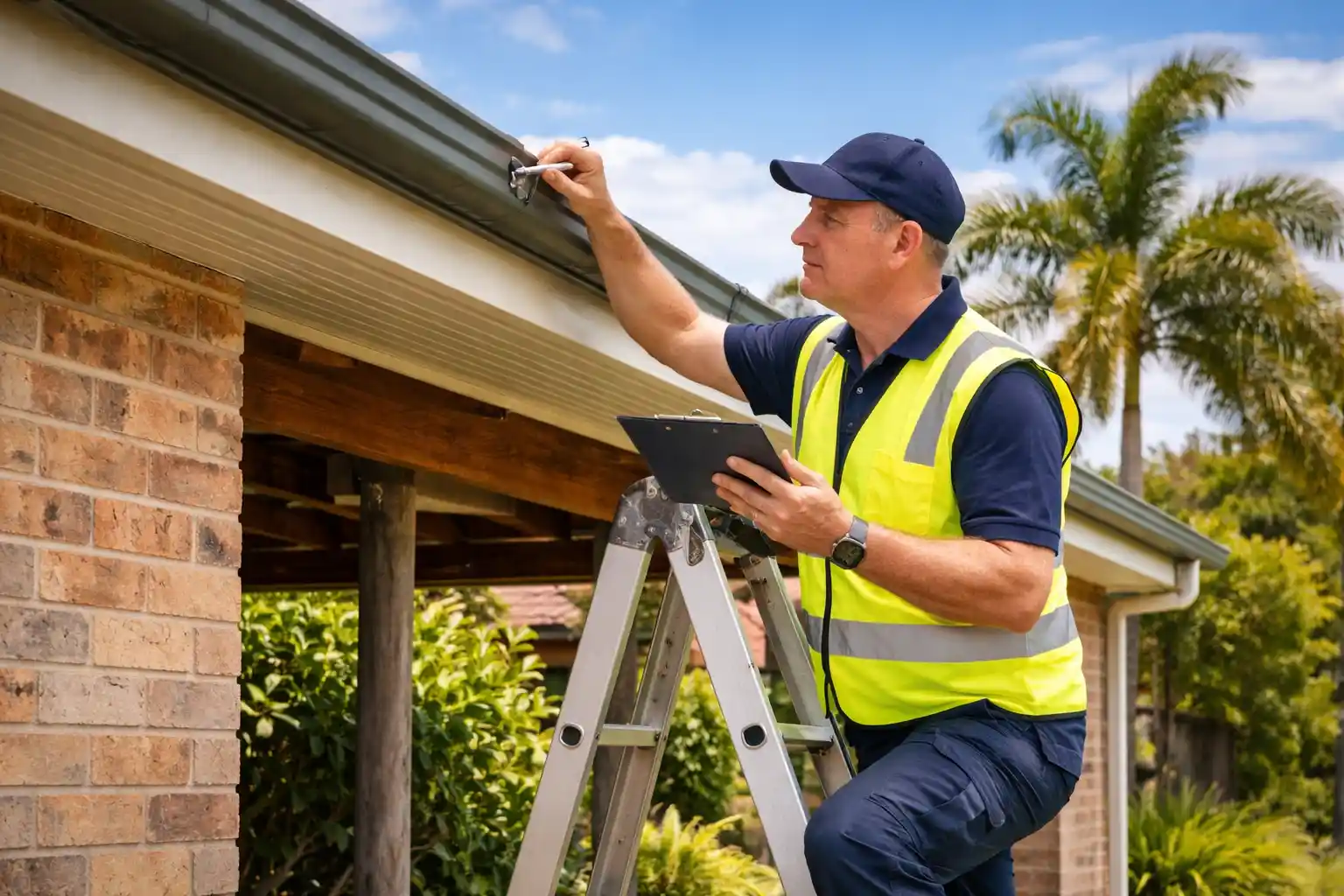Residential building inspections are a crucial step in maintaining the safety and value of your home. These inspections help identify problems that could lead to costly repairs or safety hazards. By knowing what to expect during an inspection, you can be better prepared and ensure a smooth process for everyone involved.
During a residential building inspection, a professional inspector goes through various parts of your home, looking for any signs of damage or potential issues. This includes the foundation, roof, electrical systems, plumbing, and more. The inspector provides a detailed report of their findings, helping you understand the current state of your property and any necessary repairs.
Inspections are essential whether you’re buying a new home, selling your current one, or simply maintaining your property. They give you peace of mind knowing that your home is in good condition and that any problems can be addressed promptly. Regular inspections can also help you catch small issues before they turn into big headaches, saving you time and money in the long run.
Understanding what a residential building inspection involves and how to prepare for it ensures that you get the most out of the process. This article will guide you through the importance of inspections, the key areas assessed, common issues found, and steps to prepare for your inspection.
Importance of Residential Building Inspections
Residential building inspections play a vital role in maintaining the safety, value, and integrity of your home. Conducting regular inspections helps identify existing problems before they escalate into major issues. This proactive approach saves homeowners considerable money and stress, by addressing minor repairs early.
Inspections are especially important when buying or selling a home. For buyers, an inspection provides a clear understanding of the property’s condition, helping them make informed decisions. Knowing the true state of the house could influence the purchase price or highlight necessary repairs that should be factored into negotiations. Sellers benefit from inspections by identifying and resolving potential issues before listing the property, making it more attractive to buyers.
Regular inspections also contribute to the wellbeing of your family. Many structural problems, such as poor wiring or plumbing issues, pose serious health and safety risks. Inspectors can spot these hazards and recommend appropriate measures to mitigate them, ensuring that your home remains a safe place to live.
In conclusion, residential building inspections are essential for preserving the longevity and value of your home. They help detect problems early, facilitate informed real estate transactions, and ensure a safe living environment. This makes inspections a key aspect of responsible homeownership.
Key Areas Assessed During a Residential Building Inspection
A comprehensive residential building inspection covers several critical areas to evaluate the overall condition of a home. Inspectors use a systematic approach to assess each part of the property, ensuring nothing is overlooked.
- Foundation and Structure: Inspectors check for any cracks, shifts, or weaknesses in the foundation. They look for signs of settling and ensure the structure is stable and secure.
- Roof and Attic: The roof is examined for missing or damaged shingles, leaks, and proper ventilation. Inspectors also check the attic for signs of water damage, insulation quality, and potential pest problems.
- Exterior Elements: This includes the walls, windows, doors, and gutters. Inspectors look for signs of wear and tear, water damage, and proper sealing.
- Plumbing System: Inspectors check for leaks, corrosion, and water pressure issues in the home’s plumbing. They also examine the condition of water heaters and other plumbing fixtures.
- Electrical System: The electrical panel, wiring, and outlets are assessed to ensure they comply with safety standards. Inspectors look for signs of faulty wiring or overloaded circuits that could pose fire hazards.
- Heating and Cooling Systems: Inspectors examine the HVAC systems to ensure they operate efficiently and safely. This includes checking the furnace, air conditioning units, and ductwork.
- Interior Elements: Walls, ceilings, floors, and other interior features are checked for cracks, mould, and water damage. Inspectors also look at the condition of appliances and fixtures.
By thoroughly evaluating these key areas, inspectors provide homeowners with a detailed report of the property’s condition. This information is invaluable in making informed decisions about maintenance, repairs, and overall home safety.
Common Issues Found and Their Implications
During residential building inspections, inspectors often find a range of issues that vary in severity and impact. Identifying these problems early can save homeowners from costly repairs and potential hazards.
- Water Damage: Water damage is one of the most common issues found. It can result from leaking roofs, faulty plumbing, or poor drainage. If left unchecked, water damage can lead to mould growth and structural weakening.
- Electrical Problems: Faulty wiring, outdated electrical panels, and overloaded circuits are typical electrical issues discovered during inspections. These problems pose significant fire risks and can result in severe safety hazards.
- Structural Cracks: Cracks in the foundation or walls can indicate serious structural concerns. Inspectors look for these signs to ensure the stability of the home. Ignoring such cracks can lead to more significant damage and expensive repairs.
- Pest Infestations: Inspectors frequently find evidence of termites, rodents, and other pests. These infestations can cause substantial harm to wooden structures and compromise the integrity of the home.
- Roofing Issues: Common roofing problems include missing shingles, leaks, and improper ventilation. A damaged roof can lead to water intrusions and further complicate other parts of the home.
- HVAC Deficiencies: Inefficient heating and cooling systems can lead to increased energy costs and discomfort. Inspectors ensure these systems are in good working order.
Understanding these common problems helps homeowners prepare for potential repairs and maintenance. By addressing these issues promptly, you can maintain your home’s safety, comfort, and value.
How to Prepare for Your Residential Building Inspection
Preparation is key to a successful residential building inspection. Taking a few simple steps before the inspector arrives can make the process smoother and more efficient.
- Tidy Up Your Home: Clean your house and remove clutter. This not only makes it easier for the inspector to move around but also ensures that the inspection is thorough and unobstructed.
- Provide Access: Ensure that all areas of your home are accessible, including the attic, basement, and crawl spaces. Move furniture or items that may block entry to these areas.
- Compile Documents: Gather any relevant documents such as previous inspection reports, warranties, and repair records. These can provide valuable information to the inspector and offer a clear history of the home.
- List Known Issues: Make a list of any known problems or areas of concern you have noticed in your home. Sharing this list with the inspector helps focus their attention on specific issues.
- Check Utilities: Make sure all utilities are turned on, including water, electricity, and gas. The inspector needs to test these systems to assess their condition properly.
- Be Available: If possible, be present during the inspection. This allows you to ask questions, gain insights, and understand the findings in real time.
Proper preparation is essential for a comprehensive and effective inspection. By following these steps, you can help ensure that the inspection covers all necessary aspects and provides a clear understanding of your home’s condition.
Conclusion
Regular residential building inspections are crucial for maintaining the safety, integrity, and value of your home. By understanding the importance of these inspections and what they entail, you can better prepare for them and address issues promptly. Inspections cover key areas such as the foundation, roof, plumbing, and electrical systems, identifying common problems like water damage, pest infestations, and structural issues.
Preparing for an inspection involves tidying up your home, providing access to all areas, compiling relevant documents, and being present during the process. These steps ensure a thorough and efficient inspection, helping you maintain your home in top condition.
For detailed and affordable building inspections, contact C & W Services. Our experienced team will provide a comprehensive assessment of your property, identifying any issues and recommending necessary repairs. Contact C & W Services today to schedule your residential building inspection and ensure your home remains safe and sound.



